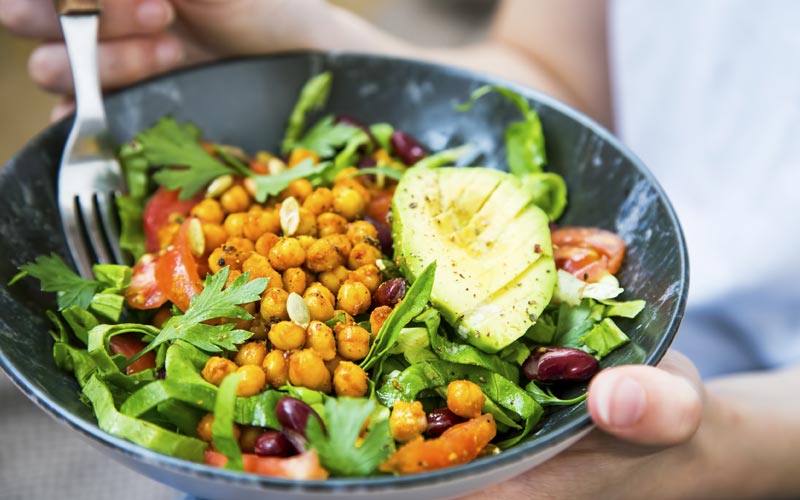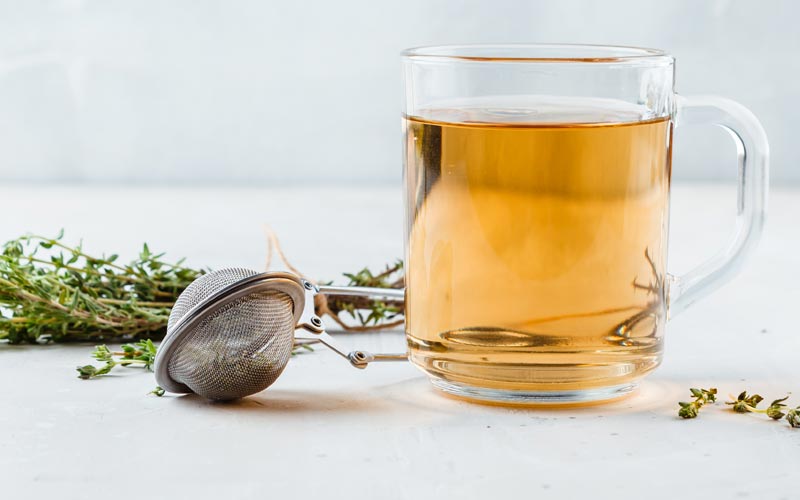Breastfeeding Diet: Healthy Nutrition for Mom and Baby

All moms know how important it is to eat well during pregnancy, but after birth, the focus on food often fades away as mom tends to what baby needs. However, if you’re a breastfeeding mother, what you eat now is just as important as what you ate then. Not only does your diet supply baby with all the nutrients he needs to grow and thrive, it also fuels your own body’s needs. If you’re falling short on enough vitamins or calories or loading up on nutritionally void foods, both you and your baby can feel the effects. Here’s what you need to know about eating right while you’re still eating for two.
A Primer on Making Milk
There are exceptions to every rule, but it is a rare occasion in which a nursing mother isn’t equipped with what she needs to breastfeed her baby. When you’re nothing more than an embryo yourself, your main milk ducts—a network of channels designed to transport human milk through your breasts and to your baby—are formed. During pregnancy, the developing placenta signals for the release of the hormones estrogen and progesterone, which stimulate milk production and cause your milk ducts to grow in both number and size.
The hormone prolactin picks up from there and prompts your body to take fat, sugars and proteins from your own supply to make breast milk. Your body is usually ready to begin supplying milk sometime in your second trimester (which is handy if your baby shows up earlier than expected), but you won’t begin full-scale milk production until after baby has arrived. At the time of birth, prolactin steps in once again to let your body know it’s time to start supplying for baby outside the womb.
For the first few days, your body will produce colostrum, a high-protein, low-fat, nutritious food substance that is thick and yellowish in color. Colostrum is easily digestible for baby’s tiny tummy and full of disease-fighting antibodies called immunoglobulins that serve to strengthen the immune system. It’s all your little one needs until full milk production begins around 48-96 hours postdelivery.
So where does your diet come in to play? It turns out nursing isn’t so different from pregnancy. “Everything you eat gets transferred to your baby via your breast milk,” shares Sara Mercer, holistic health and wellness coach, clean living expert and health blogger at mercerandgreen.com. “A healthy diet for mom means that the milk baby receives is loaded with all the nutritional needs required to develop healthily.” Your body is able to make breast milk all on its own, but your diet helps dictate how good for baby that breast milk is—and maintaining a healthy lifestyle certainly doesn’t hurt you, either.

Eating Well For Two
“Eating healthfully while nursing is so important for both mom and baby,” remark Stephanie Clarke, MS, RDN, and Willow Jarosh, MS, RD, dietitians and members of the healthy mama brand medical advisory council. “The nutrition benefits for mom are actually the largest because mom’s body will always put the composition of her breast milk first and her own nutrient needs second.” That means that if you’re not enjoying an ideal diet of varied food groups, the one who will suffer most is you. Your baby will drain your stores to get what he needs, and you’ll be left with the ill effects of poor nutrition.
If you do eat right, though, you’ll enjoy immediate benefits. Says Amanda Cole, certified lactation counselor and owner of Yummy Mummy, a breastfeeding shop in New York, “A diet filled with healthy foods will not only keep breastfeeding women more energized but also help with hormonal balance.” During the postpartum period, when both your body and soul are going through a pretty significant upheaval, providing yourself with the fuel you need is key for your sanity and survival. A bag of chips for lunch just won’t cut it anymore! You’ll reap long-term benefits, such as increased bone health, from maintaining a balanced diet of vitamin-rich foods during this time as well.
Of course, your baby will prosper from an influx of good nutrition, too. Although he’ll get the basics regardless of what you’re eating, “Healthy foods will … help to fortify your breast milk,” notes Cole. You can make your milk better and more beneficial for baby if you load up on the best foods that offer a wide variety of vitamins and nutrients.
As an added bonus, a healthy diet for baby now can result in a healthy diet as an adult, point out Clarke and Jarosh. “When you breastfeed, your baby gets to taste many of the flavors that you do. So eating foods that you eventually want your baby to like—such as vegetables—is important. One study found that babies of breastfeeding moms who ate green beans consistently for eight days were three times more likely to accept the taste of green beans later.” So if you want your baby to enjoy a variety of tastes in his future diet—or just ensure that he eats his vegetables with a smile—the time to start introducing these foods is now.
Build a Better Diet
Your breastfeeding diet will look a lot like your pregnancy diet, although you do need a few more calories to properly maintain your milk supply. While it’s generally recommended that healthy expectant moms add about 300 calories to their diet, “Breast milk requires approximately 500 calories per day to produce,” advises Mercer. For most moms, this means you’ll be aiming for about 2,300 calories per day. (If you are over- or underweight or have health problems, your caloric needs might differ. Check with your healthcare provider if you have questions or concerns.) The good news about taking in all those extra calories? You’ll work them off almost instantly, just by nursing. In fact, breastfeeding burns so many calories that many moms find it helps them lose the pregnancy weight they gained.
You’ll also need “a solid supply of healthy fat,” according to Mercer. “Plant-based fat sources such as nuts, seeds and avocados are great foods for nursing mamas.” Clarke and Jarosh add that healthy fats are also important for baby’s cognitive development. While less healthy high-fat foods—like cupcakes—should be enjoyed sparingly, there’s no reason to skip them altogether. Just as in pregnancy (and everyday life in general), a little treat now and then is good for the soul.
Another must on your dietary lineup: foods that are rich in DHA. This omega-3 fatty acid helps promote baby’s brain growth and can be found in oily fish like wild salmon and sardines, as well as DHA-enriched foods like eggs.
While it isn’t technically a food, water is perhaps the most important part of your diet. Clarke and Jarosh recommend aiming for at least 64-72 ounces per day. Says Mercer, “It is so important for nursing moms to stay well-hydrated. Breast milk consists mostly of water, so in order to produce it you need to be continuously hydrating by refilling that glass of water. Dehydration can easily lead to low milk supply.” Because most nursing moms are constantly thirsty, you’ll likely have no problem meeting your recommended fluid allotment.
How to Boost Nutritional Benefits
A quick internet search will flood you with information on foods that are believed to increase your milk supply, and while the jury’s still out on whether they actually make a difference, one thing is for sure: They’re all very healthful foods, and adding them to your diet can only be a positive move. Add Clarke and Jarosh, “Many of the foods are whole grains, fruits (including dried fruit) and veggies, which you should be eating an abundance of anyway.”
All nursing moms—and expectant moms, too—should consider adding these good-for-you foods to their regular diet.
While not all of the above foods are credited with increasing milk supply, they are considered breastfeeding “power foods” and will help ensure your breast milk is passing on the very best to your growing baby.
What to Avoid While Nursing
While many of the prenatal dietary restrictions are lifted while breastfeeding (welcome back, sushi!), there are a few things that will stay on the hands-off menu for the time being. Fish that contains high levels of mercury or other toxins—including tilefish, fresh tuna, swordfish, mahi-mahi, king mackerel and shark—is still considered unsafe for breastfeeding mamas. And while caffeine has worked its way back onto the cleared list, it should only be enjoyed in moderation. More than a couple of cups of coffee a day can cause baby (and you) to be jumpy and make it difficult for both of you to sleep.

Drinking a glass of wine or two per week while nursing is generally considered safe. Keep in mind, though, that alcohol can lead to dehydration, so drink plenty of water to counter the effects. Note Clarke and Jarosh, “Contrary to popular myth, research shows that alcohol does not stimulate milk production and may actually impair it.” If you’ve fallen for an old wives’ tale about a beer a day boosting your output, you may want to rethink your game plan.
It’s each mother’s own decision whether she chooses to drink or abstain while nursing, so if you’re unsure about popping open a bottle of Pinot, do some research and talk to your doctor—then go with what makes you most comfortable. If you do decide to include alcohol in your diet, be sure to stick to the American Academy of Pediatrics guidelines: Wait at least two hours after one serving of alcohol (12 ounces of beer, 5 ounces of wine or 1.5 ounces of hard liquor) before breastfeeding again to allow for the alcohol to clear from your system—and therefore your breast milk—before baby feeds again. (If you sip immediately following a feeding, the timing usually works out nicely.)
Another item that might make your off-limits list is artificial sweetener. “While there isn’t much research claiming artificial sweeteners, sugar alcohols and sweet herbs like stevia aren’t safe, there is an equally limited amount of research proving that they definitely are safe,” explain Clarke and Jarosh, who recommend sticking to natural sweeteners most of the time. Of course, it goes without saying that over-indulging in sugar-laden junk foods loaded with empty calories is a bad idea—not just while breastfeeding but anytime.
One more thing to avoid: crash dieting. You might be a little unsettled with your post-baby body, but now is not the time to try to lose the extra weight. “Getting enough calories each day is important for producing an adequate breast milk supply for baby. Extreme diets and any type of fast have no place in a nursing mom’s life,” warn Clarke and Jarosh. “Although it may seem like cutting calories will help you lose weight faster, it can actually be counterproductive [while nursing].” Additionally, they advise, “Excessive exercise can decrease milk supply.” Slow and steady wins the race.
Eat a balanced diet, enjoy moderate exercise once you’ve been cleared by your doctor, and know that it takes some time for your body to settle into its new (and fabulous) form. Save any decisions to diet until baby has weaned, or at the very least wait until nursing is well-established and your body has had time to readjust on its own. (Remember, one of the benefits of breastfeeding is that it’s great for weight loss!)
Navigating Nursing Roadblocks
Many moms have one big question in regards to milk making: Will I be able to make enough milk to nourish my baby? The answer is almost always yes. It can be slightly nerve-wracking to feed someone and not be able to tell how much he’s eating (your breasts don’t have those nice 2-ounce markers like the bottles do, after all), but if your baby is gaining weight at a pace that your pediatrician is comfortable with, you can rest assured he is eating enough.
The best way to ensure baby is ingesting an ample supply of quality milk is to eat well and pass that nutrition on to your wee one. Feeding on demand, particularly in the first few weeks, is another essential component. “Your breasts need constant stimulation from your baby in order to get into a good milk-making groove. The more milk your baby drinks, the more you will make,” shares Mercer. When your baby seems hungry, feed him—even if it hasn’t been long since he last ate. “Newborns have tiny tummies, so it is perfectly normal for them to want to eat every hour or two,” she says.
Nursing babies who show signs of fussiness can also cause a new mom to doubt her ability to breastfeed. And sometimes, what you eat might factor into his irritability. “If you suspect your baby is sensitive to a particular food or beverage, eliminate it from your diet for a few days and observe,” suggests Cole. Cow’s milk, eggs, fish, citrus fruits, nuts and wheat can all cause gastrointestinal upset in a nursing baby. “Cutting dairy products from your diet can help reduce any digestive issues your baby may be having, such has frequent spitting up, reflux and constipation,” suggests Mercer. “Dairy is highly mucus forming and hard to digest.”
However, your best bet when running into problems while nursing is always to bring in a lactation consultant. These nursing gurus can help pinpoint your problems, come to your house for hands-on help when necessary and generally make your life as a breastfeeding mom much, much easier. Check with your hospital, OB or pediatrician to see if she can recommend a consultant in your area.
Remember It’s Worth the Work
Nursing is well worth the effort you put in and the benefits are lifelong. It can reduce your chances of suffering from postpartum depression and even lessen your risk of developing certain types of cancer later on. Your breastfed baby will enjoy increased protection from illnesses, a boost in intelligence, a lower risk of SIDS and a decreased possibility of suffering from obesity as an adult.
While eating right isn’t always fun—or even easy—it does pay off. Remember that it isn’t all or nothing, either. You can practice a well-balanced, healthy diet and still enjoy nachos or ice cream. If you have a particularly busy day and find that you’ve veered from the health department (frozen macaroni and cheese is better than starving!), don’t sweat it and refocus at the next meal. The habits you develop now as a nursing mom can stick with you for the rest of your life—and with the right example set, you’ll be proud to have your little one follow in your footsteps.







